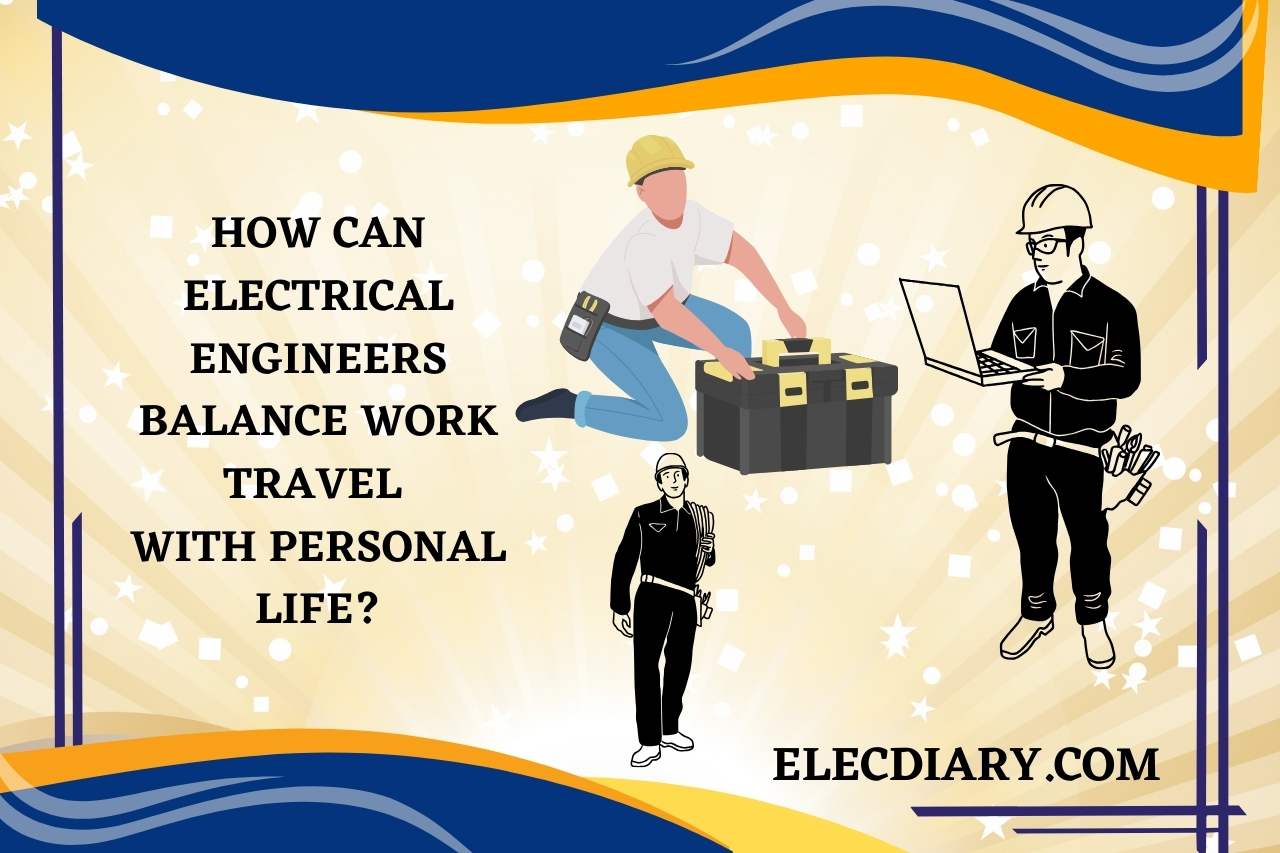Do Electrical Engineers Travel a Lot? Exploring Their Work-Life Balance!
In the vast realm of electrical engineering, a question often emerges to many of us: “Do electrical engineers travel a lot?” The spectrum of our responsibilities stretches across diverse industries, each with its unique demands. Whether collaborating across global projects or spearheading innovations at distant locations, the nature and frequency of your travels are multifaceted. Dive into this exploration, where we unravel the dynamics of their on-the-go lifestyle, its underlying reasons, and the art of harmonizing work-related expeditions with personal commitments. Embark on this journey to decode your nomadic side of an electrical engineer’s profession.
What Roles Do Electrical Engineers Typically Fill in Different Industries?
The roles electrical engineers typically fill in different industries are mentioned below. Electrical engineers, driven by their comprehensive knowledge of electrical systems, circuits, and devices, find relevance in a vast array of industries.
Energy Sector
They play pivotal roles in designing, testing, and supervising the production of power generation and transmission systems. Engineers in this field often work with renewable energy systems like solar and wind.
Telecommunications
In this domain, electrical engineers ensure seamless communication by designing and maintaining circuits, switches, and broadband networks.
Electronics Manufacturing
They develop electronic devices, from household appliances to sophisticated medical equipment and microprocessors.
Automotive
Modern vehicles are inundated with electrical systems. Electrical engineers in this sector focus on improving vehicle functionalities like navigation, control systems, and even electric propulsion.
Construction and Infrastructure
Engineers here deal with the electrical aspects of buildings and structures, ensuring safety standards, energy efficiency, and the integration of smart systems.
Aerospace
Working on aircraft and spacecraft, they are responsible for systems like avionics, radar, and navigation.
Each industry and its sub-sectors present unique challenges and opportunities. The vastness of roles across these industries showcases the versatility of electrical engineering and its indispensable nature in today’s technologically driven world.
Do Electrical Engineers Travel a Lot?
Electrical engineers travel a lot. This answer largely depends on your specific role and the industry you are in. While some positions may demand frequent travel, others might predominantly be desk-bound.
Role and Responsibilities
Field engineers or those in client-facing roles often travel to various sites, ensuring installations, repairs, or consultations are executed correctly.
Conversely, research and development engineers might have limited travel, primarily working in labs.
Industry Type
Electrical engineers in the energy sector, especially those dealing with renewable sources, might travel to remote locations for project installations or maintenance.
On the other hand, those in electronics manufacturing might be more static, staying close to production facilities.
Project Duration and Location
Engineers working on international projects or those with longer durations might need to stay onsite, leading to extended travel. This is common in large-scale infrastructure projects.
Professional Growth
Sometimes, travel arises not from job demands but opportunities for professional development. Attending international conferences, workshops, or training programs can be beneficial for career advancement.
Company Size and Reach
Engineers in multinational companies might have more chances to travel, especially if the firm has global clients or branches.
While travel is an aspect of your electrical engineer’s career, it’s not ubiquitous. It varies based on numerous factors, including your personal choices.
Some engineers, from our readers, seek travel-rich roles, while others prefer a more stationary job profile. The dynamic nature of this profession offers flexibility in charting your career trajectory.

What Factors Influence the Amount of Travel for Electrical Engineers?
The factors that influence the amount of travel for electrical engineers were already mentioned. But here are further reasons for it:
Nature of the Job
Some roles, like field service engineers or sales engineers, inherently require more travel. They often visit client sites, oversee installations, or provide on-ground support. In contrast, design engineers may primarily work from a central office or lab.
Industry Demands
Engineers in sectors like oil and gas, renewable energy, or international consulting may find themselves traveling more often, especially to remote project sites or different countries.
Company Size and Operations
Electrical engineers employed by global corporations or firms with multiple branches might travel to various company locations for collaboration, training, or project management.
Project-Based Work
Engineers involved in projects located in different regions or countries will need to travel to those sites. The project’s duration can also extend their stay.
Professional Development
Attendance at conferences, seminars, or training sessions, whether domestic or international, can add to the travel frequency. This not only aids in skills enhancement but also in networking.
Even though your core competencies of electrical engineering remain consistent, your travel aspect can differ significantly, influenced by a blend of job roles, industry requirements, and individual career choices.
Which Specializations within Electrical Engineering Require More Travel?
Which specializations within electrical engineering require more travel are mentioned below. Some of these demand more mobility than others due to the nature of their work:
Field Service Engineering
Engineers in this domain often travel to various sites to install, troubleshoot, and maintain electrical equipment. They serve as the frontline responders for technical challenges.
Power Systems and Grids
Engineers working on large-scale power projects, especially in remote areas like hydroelectric dams or wind farms, frequently travel to ensure systems are optimally designed and functioning.
Oil and Gas
Electrical engineers in this industry often visit offshore platforms, drilling sites, and refineries to design or oversee the installation of electrical systems.
Sales and Applications Engineering
These engineers demonstrate product applications to potential clients, necessitating trips to various businesses or manufacturing units.
Telecommunications
Engineers in this sector might travel to remote areas to set up or maintain communication towers and infrastructure.
Consultancy
Consultants often visit client locations to understand needs, offer solutions, and supervise the implementation of their recommendations.
While these specializations stand out in terms of travel requirements, it’s essential for you to understand that individual experiences can vary based on the job role, company policies, and specific project demands.

How Can Electrical Engineers Balance Work Travel with Personal Life?
Balancing frequent work travel with personal life is a challenge that many electrical engineers face, including you and us. Here’s how you can ensure a harmonious equilibrium:
Prioritize Family Communication
Regular check-ins with family or close friends, through calls or video chats, can maintain your closeness despite physical distance.
Schedule Downtime
It’s crucial to allocate personal time even when you are traveling. Sightseeing, indulging in a hobby, or simply relaxing can recharge your energy.
Maximize Work Efficiency
Efficiently planning work trips by clustering meetings or tasks can reduce your frequency or length of travel, allowing more time at home.
Utilize Technology
Tools like calendars, reminders, and video conferencing can help you manage work while staying connected with loved ones.
Negotiate Flexibility
Discuss with your employers about the possibility of flexible schedules or remote work after intense travel periods.
Finding the right balance requires proactive effort and constant adjustment to suit changing professional and personal scenarios.








